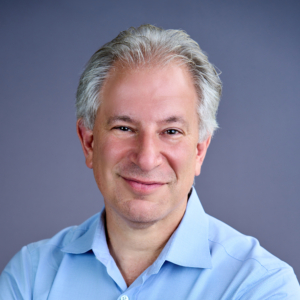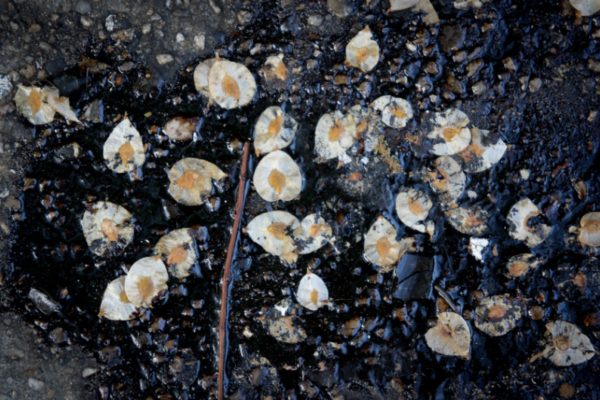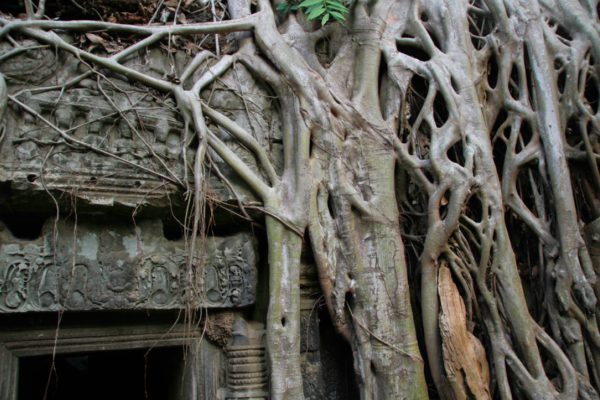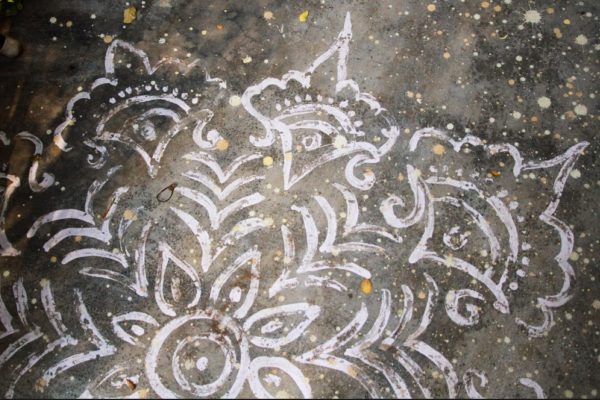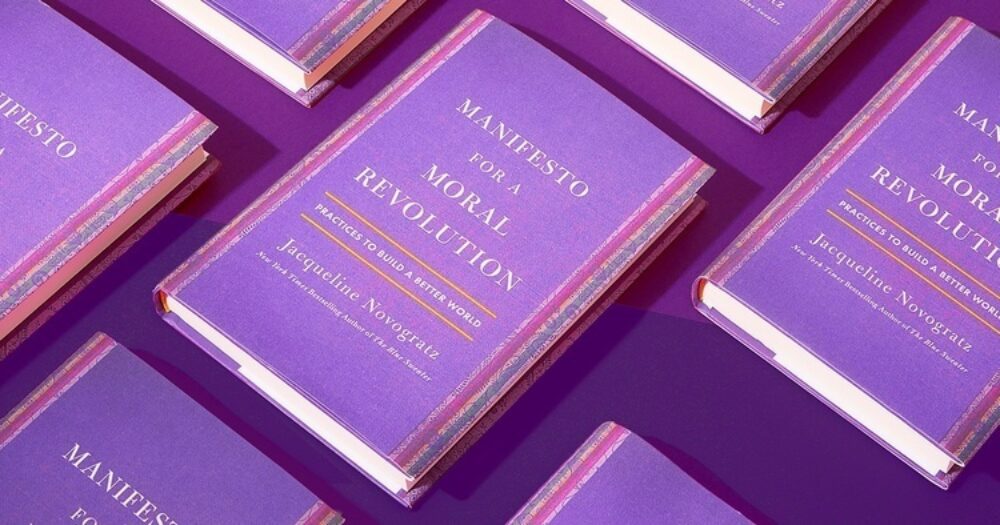
Yesterday, my five-year-old daughter, Minh, got stuck. She desperately wanted her younger brother Henry to stop drawing on the virtual screen in the digital playdate they were having with their friends, so the game could proceed the way “it was supposed to.” She didn’t want or know how to negotiate. She melted down.
Adulthood is like a higher altitude. Problems that seem intractable at the altitude of five are approachable enough from inside a way of living that almost all of us learn. We learn greater patience, master a wider repertoire of ways to weave together listening and asking, and come to have faith that a good enough resolution to most problems is just a few sensible steps down the road of give and take.
Every once in a while, reasonably functioning adults like us get a glimpse of what the world looks like from a dramatically higher altitude than we usually inhabit: an altitude at which the problems we ignore, rail at, or butt our heads bloody trying to overcome, submit to a different and better way of living. To the extent we hold a view of this higher altitude long enough, we see that living up there doesn’t just involve doing this thing or that thing differently, but cultivating a new way of being, in which we slow down time to see what would otherwise rush past, pull nearer what was previously distant beyond reach, and approach with patience and clarity what strained and consumed us before.
The greatest leaders in any field and any age not only occupy this higher altitude but teach others how to elevate themselves. They bring the unreachable into reach, like Gandhi taking the concepts of satyagraha (nonviolent resistance) and swaraj (self-rule) and distilling them into a set of practices to shape a life and shape a movement.
Jacqueline Novogratz is this kind of leader. She is a teacher of the rarest and best kind, who connects powerful particulars of craft to an ethos, a concept and discipline of living that any of us who are intentional enough and brave enough can apply. I’ve learned from Jacqueline, and with Jacqueline as an advisor to Acumen, for sixteen years, and have only scratched the surface of what there is to learn. Her new book, Manifesto for a Moral Revolution, brings to life through a set of touchstone stories from her life and Acumen’s work a set of essential practices that can elevate us all.
The book itself is indispensable. I have written this reflection as a way to distill my own learnings – not so much a summary of the book as a crystallization of the lessons I take – with the hope that they’ll in themselves be useful to readers of On Human Enterprise, and, more importantly, that they’ll provide an impetus not simply to read Jacqueline’s Manifesto, but to return to it as a touchstone and a compass.
Manifesto teaches us to dissolve the boundary between self and world, in service of caring for both more fully. Early in the book, Jacqueline cites her early mentor John Gardner, founder of Common Cause and the only Republican in Lyndon Johnson’s cabinet, a position he resigned in protest of the Vietnam War:
The self-renewing man looks forward to an endless and unpredictable dialogue between his potentialities and the claims of life – not only the claims he encounters but the claims he invents.
As we turn outward, as we listen to others and experience in full bloom their human needs and aspirations, we embrace new claims. These claims stretch us. Responding to the fullest of our partial vision and bounded abilities, we progress, fall short, progress, fall short, and in the process discover new ideas and new potential. These discoveries open new vistas, inspiring us to turn outward more boldly, and know our core more fully. So the dance unfolds.
If this is to be our picture of a life well-lived, if we are to do as Jacqueline exhorts and “embrace the beautiful struggle” even as that struggle tears us far from what we know and far beyond what we know how to handle, what will guide us?
Jacqueline teaches us to be choose the ideas that shape us, and then choose the work that will bring these ideas to life. “I believe you become the story you choose to tell…. In consciously shaping our personal narratives, we find the freedom to become our best selves.” What she means here isn’t simply the stories we tell others, but the ideas we steer by, navigating rough seas by stars only intermittently visible through the clouds.
The Acumen manifesto compresses into a few words just such a compass:
It starts by standing with the poor, listening to voices unheard, and recognizing potential where others see despair.
It demands investing as a means, not an end, daring to go where markets have failed and aid has fallen short. It makes capital work for us, not control us.
It thrives on moral imagination: the humility to see the world as it is, and the audacity to imagine the world as it could be. It’s having the ambition to learn at the edge, the wisdom to admit failure, and the courage to start again.
It requires patience and kindness, resilience and grit: a hard-edged hope. It’s leadership that rejects complacency, breaks through bureaucracy, and challenges corruption. Doing what’s right, not what’s easy.
Acumen: it’s the radical idea of creating hope in a cynical world. Changing the way the world tackles poverty and building a world based on dignity.
Reading this, there’s a temptation to see it as a piece of writing – and it is beautifully written. But in sixteen years of advising Acumen and knowing Jacqueline, what’s extraordinary in the manifesto is how every phrase has been translated into a dense web of teachings, behaviors, business systems, so that the manifesto is as alive as a rainforest, visible and hidden parts together sustaining a vastly diverse set of endeavors around the world. The book shows us how to translate guiding principles and aspirations, like Acumen’s manifesto, into disciplines for action. Each chapter introduces a practice which, honed and sharpened through years of attention, can enable an individual to live the kind of life that the manifesto illuminates.
Too few of us make our commitments explicit. Too few of us write down our deepest intentions. Jacqueline and Ray Dalio have been powerful teachers to me in this regard. Their principles differ greatly in spirit and tone, but both have submitted themselves with equal rigor to the discipline of first shaping their principles and then letting their principles shape their practices, and letting their practices, like water carving limestone, shape their lives.
Being guided by ideas that we’ve shaped to guide us is necessary, Manifesto teaches, but not sufficient. We must be guided not only by the abstract universals of our philosophy, but by the deep, intensive, immersive listening through which we come to know the needs and hopes, the identities and narratives of others. Each person holds a world. Jacqueline cites Rumi: “You are not a drop in the ocean. You are the ocean in a drop.” The fullest life encompasses the broadest listening, not simply to those who are around us as we begin our journey, who share with us a common background or professional striving or elective affinity, but to the “voices unheard,” who can expand our world, and show us the human universals that transcend and are enriched by difference.
With the spark that connects need and capacity, we must “just start.” Great work demands boldness in miniature, the difficult and unsung work that must be completed before hard problems can be solved at scale. Again and again, Manifesto brings us into the heart of this early work. In Nairobi, I’d accompanied Jacqueline and Acumen advisors and board members to visit Sanergy, a company that franchises toilets in the slums, empowering local entrepreneurs who finance the $500 cost of a facility with microloans, and then collects waste daily, composting it and converting it into fertilizer they can sell. Here in the book’s pages, we see the founders at the beginning, before there was an elegant “circular economy” business model or even a business. Co-founder Lindsay Stradley: “We just kept showing up. For weeks, we would go into the slums and talk to people, until we made it clear we weren’t going anywhere. The problem of waste had gotten out of control in Mukuru, so people were desperate to try a new solution.” That solution, like so many others Jacqueline shows us, required complex invention and integration of many parts, in hard conditions, without the powerful lubricants of trust, developed markets and ready access to capital.
The unicorn economy has burned into our minds the picture that when the right product intersects with the right need, there results a rapid, frictionless, boundlessly rewarding J-curve of scale. Manifesto shows us a process of scaling that’s more like the Hero’s Journey, in which a series of crucibles shapes founders and companies into instruments of change, strengthened by their trials in ways they could never have planned and could never have envisioned. We see the ambulance company Ziqitza thrust into prominence by the bravery of their response to the 2008 terrorist attacks at the Taj and Oberoi hotels. We see Jawad Aslam, a young Pakistani-American entrepreneur who built an affordable housing development in Lahore, forming the conviction that a central expression of the spirit of this community would be the radical choice for all Muslims, of all sects, to pray together in the community’s single mosque.
The road that Manifesto shows us is not the path of purity but the principled navigation of hard choices. Acumen’s own values represent pairs of ideals that stand lastingly in tension: generosity and accountability, audacity and humility, leadership and listening. I’d written to Jacqueline regarding the values several years ago, when I was at the beginning of the journey of building Incandescent and we were thinking together about the development of the “Acumen Way”:
We must encompass a complexity as great as the problems we are committed to solve. With patience, awareness and clear thinking, we can perceive the simplicity underneath, and see how to act and how to be.
The imperative to navigate values in tension is at the core of the story Jacqueline tells of Andrew Otieno, a senior leader at Jamii Bora Bank, a Nairobi-based microfinance organization, and his work to reopen the Toi Market, a large open-air bazaar in the heart of Kibera, Africa’s largest urban slum. She sets the scene:
One night, during the raging post-election weeks of rioting [in 2007], a couple hundred young men looted and razed the market in a massive brawl that left many wounded and several dead. In the morning, all that was left on the hallowed ground of Toi were ashes and charred stumps that indicated where market stalls had once stood. The community was not only traumatized, but left with no place to work, and most were at risk of falling deeper into poverty. Toi could easily have become a war zone.
Andrew sets out to rebuild the marketplace, and Jacqueline, who arrived on the scene while the fires were still burning – on her day of arrival, an old man is attacked with a machete nearby in broad daylight – tells us how Andrew became clear that he needed to reach out and work with the gangs responsible for the violence, Nubians who asserted an ancestral claim to the land on which Toi was built. We see him visit the young gang leaders who had organized the looting in the refugee camp where they lived, who threatened to kill him, and we come to understand his decision to hire these young men to distribute foodstuffs from UN agencies to the residents of the camps, and then to rebuild the market. He negotiated with the market residents to allocate two hundred stalls to the gang, who began to build businesses side by side with the merchants whose stalls they’d burned and whose brethren they’d savaged. Jacqueline writes:
The young men… now each owned a business and a chance to rebuild their lives. To the market residents, Andrew offered an uneasy peace and a chance to get back to work, to stand again on their own two feet…. With no good options, Andrew found the courage to make a compromised decision, knowing it was the best he could do…. Andrew survived unimaginable pressures. He risked his reputation and his life for his community. And he himself seemed surprised by his bravery, which was ignited and sustained by an abiding commitment to his people, his place, his nation. We cannot choose what happens to us, but we can choose how we respond. In courageously confronting ugly realities, and by knowing not only what he stood for but for whom he stood, Andrew collaborated with other brave men and women. Together, they prevailed in rebuilding a market and restoring peace.
So often in the circumstances of greatest danger and greatest need, the scarce and essential resource is trust. Manifesto shows us the qualities by which trust is built – trust between parties locked in conflict, trust that places capital behind entrepreneurs solving some of the world’s most intractable problems, trust that gives those who have been told they would amount to nothing the faith to strive and the support to heal.
I myself have never confronted a machete-wielding teenager whose “eyes made it clear… that he’d killed people before.” There is a danger that Jacqueline’s readers encounter these stories of extremity leaning back: interested in what it looks like to do work they’ll never do in places they may never visit, but not engaged with what it means to weave these practices into the familiar fabric of their lives. This would be a great loss. Eudora Welty wrote at the close of her memoir One Writer’s Beginnings, “A sheltered life can be a daring life as well. For all serious daring starts from within.”
The question of trust plays out not only in the outer world in which violence must be stilled, voices must be heard, and dignity must be honored – it plays out in our inner chambers. These practices Jacqueline illuminates have their deepest meaning within. Will we state our own commitments and beliefs in burning words that light our way? Will we dare to listen to the better angels of our nature, as they guide us past temptations to settle, temptations to follow the crowd rather than follow our vision? Will we slow down to listen to the “voices unheard” always a step away, always with something urgent to tell us if we could make space to hear? Will we do the work that Dr. V of Aravind called becoming the perfect instrument? Will we trust our lives to our best ideals?
In How Children Learn, John Holt writes:
Children… use fantasy to make sense out of reality, make a mental model of reality that works. Because they have so little experience, this is hard to do. They are like someone trying to put together a jigsaw puzzle with only 10 percent of the pieces – they have to invent imaginary pieces to fill in the gaps. We adults don’t like to do this. If we can’t be sure we have all or nearly all of the pieces, then we won’t work on the puzzle. But little children can’t wait until they have all the pieces, that is, all that is, all the information and experience they need to make a coherent and sensible model of reality. They have to make some kind of sense of it right now.
This kind of playful, seriously daring engagement with the pieces of the puzzle they have results in learning so powerful that it is as if every few years a child lives in a whole new world, encompassing and transcending the world they knew before. Minh’s younger brother Henry writes the number 7 and the word “FOX” over and over again because this is his 10 percent, this is the part of the puzzle he can work with now. In a couple years, words and numbers will be things he can use with confidence, with the same aplomb that vaulted him from being a late walker to a scooter daredevil in the span of six months. Nothing could be more powerful for an adult to discover than how to live this way and how to learn this way.
What the view from a higher altitude teaches us is that we can learn this way – that, to me, is the fundamental lesson of Manifesto. We’re all playing the games that matter most with only a small set of the pieces, though with diligence and patience and daring, it is always possible to assemble more. We all get stuck just at the threshold of what’s possible; the best of us have eyes to see it. To walk through this threshold, we need to acknowledge that our work isn’t simply to approach some problem at hand more resourcefully, but to shape the kind of the life that turn by turn, year by year enables us to assemble the puzzle more fully. This is our inner work, and this is our work together. There is always a place to start, there are always practices to build from.
Here, Jacqueline shows us. Here are the stories I’ve seen. Here is the life they’ve opened for me. Here is a set of extraordinary ordinary souls, and here is the dailiness of what they do. Here, let us give you our hands. Here, begin.
Photo via Acumen.
